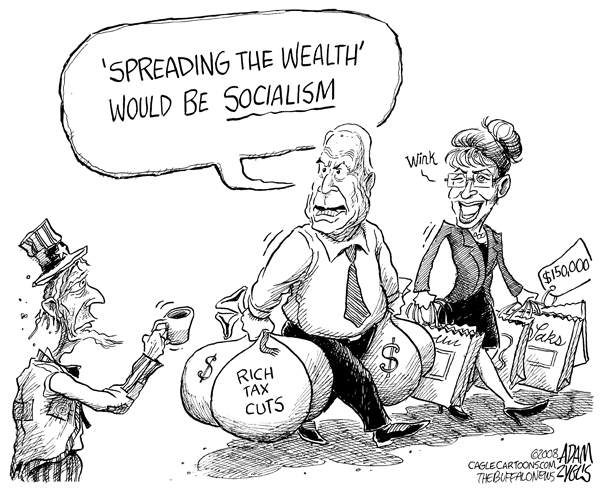Brink Lindsey reviews the American Enterprise Institute’s Arthur C. Brooks’s new book with a title too long and too silly to reproduce here. In the paragraph below, Lindsey takes exception to Brooks’s notion of “American exceptionalism” being defined by “free markets,” as compared to the social democratic example of Europe, and, presumably, the outright communism we have here in Canada:
Plenty of European countries have markets about as free as those in the land of the free. Look at the ratings provided by the annual Economic Freedom of the World report, co-published by the Cato Institute. On four broad categories of economic freedom — legal structure and security of property rights; access to sound money; freedom to trade internationally; and regulation — the United States was slightly “freer” than Sweden, the United Kingdom, Austria, Finland, and Switzerland. Meanwhile, Ireland, the Netherlands and, by a wide margin, Denmark were found to have freer markets. Note that the two highest scorers have two of the biggest welfare states in the world — which just goes to show that blurring issues of regulation and redistribution, as Brooks tries to do, leads to intellectual confusion.
Here’s Frye in one of the late notebooks:
At present we have capitalist and socialist societies, but the old notion of socialism as the fulfilment of capitalism, so sacrosanct in my youth, I don’t believe in now. I think that socialism as it got established was only the antithesis of capitalism, and the fulfilment is ahead of us. The core of the fulfilment is what we call democracy, which I see, at least at present, as a tension between politico-economic and cultural rhythms. (CW 6, 553)
